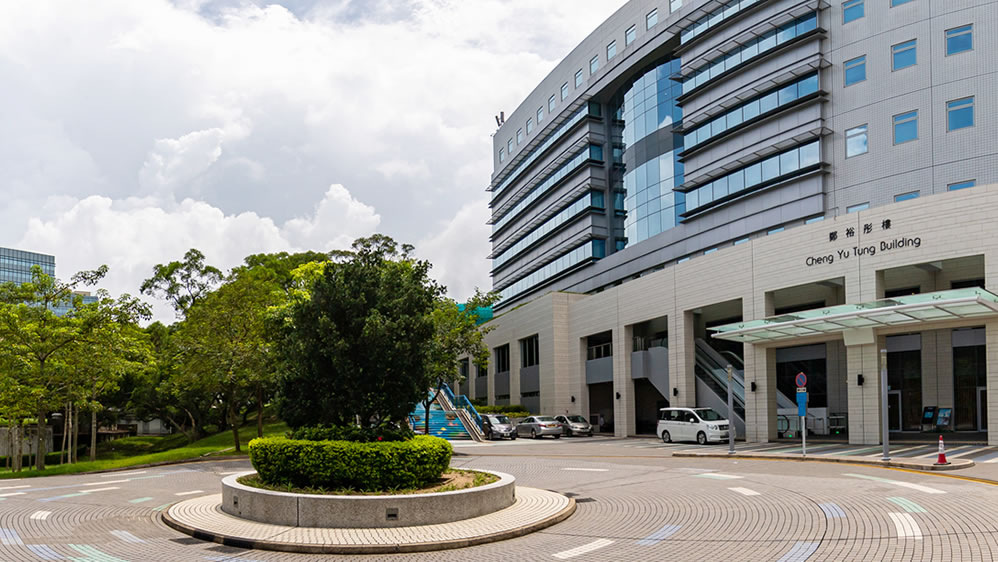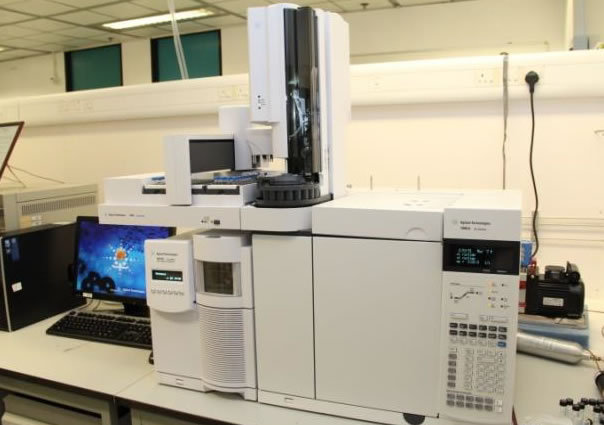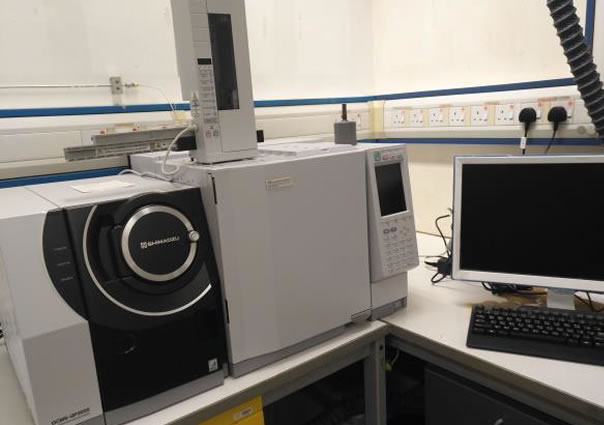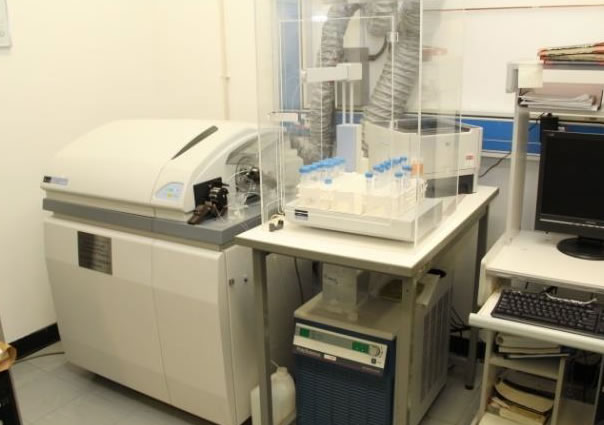Sections
Text Area
Courses Offering
The program is designed to cover all important aspects of modern laboratory analysis, whilst offering maximum flexibility for students to adapt the program to their own needs. For those seeking more practical hands-on experience, up to 9 credits of laboratory work, including a research project, can be taken.
Text Area
Lecture Course Synopses
Text Area
CHMS 5010
Chemical Data Analysis
Measurements; Statistical treatment and analysis of Data; Uncertainties; Calibrations; Detection limits; Interferences; Use of Standards and Control Charts; Quality control and assurance; Presentation of data.
Text Area
CHMS 5020
Elemental Analysis
Atomic spectroscopies; Atomic absorption (AA) atomic emission (AE); Elemental analysis by ICP-MS; Isotope analysis. Elemental analysis using X-rays; X-ray Fluorescence (XRF); X-ray Photo-electron Spectroscopy (XPS); Secondary Ion Mass Spectrometry; Energy Dispersive Analysis of X-rays (EDAX); Combustion analysis.
Text Area
CHMS 5030
Molecular Analysis
Characterization of organic molecules; Mass Spectrometry; Ionization techniques; Mass analysis; Protein MS; NMR Spectroscopy; 1H and 13C NMR; Multinuclear experiments; 2D and pulse techniques; Solid state NMR.
Text Area
CHMS 5040
Separation Methods
Chromatography; Gas chromatography; GC-MS; Liquid chromatography; HPLC; Choice of stationary and mobile phases; Chiral separations; Affinity chromatography; Ion chromatography; Capillary zone electrophoresis; Micro-fluidics.
Text Area
CHMS 5050
Optical and Electrical Methods
Molecular spectroscopies; Vibrational (IR and Raman) and Electronic (UV-vis) spectroscopy; Fluorescence; Electrochemical analysis; REDOX chemistry and bio-chemistry; Electrochemical measurements; pH measurements; Design and use of sensors.
Text Area
CHMS 5110
Environmental and Food Analysis
Environmental sampling; Trace analysis; Water analysis; Toxins and pesticides; Aerosols and particulates. Food safety and analysis; Calorimetry.
Text Area
CHMS 5111
Environmental Analysis
Environmental sampling; Trace analysis; Air analysis; Water analysis; Soils analysis; Gas-phase components and major air pollutants; Toxins and pesticides; Aerosols and particulates; Assessing general health of water and soil systems ; Recent advances in environmental techniques; Numerical analysis of environmental problems.
Text Area
CHMS 5112
Food and Drug Analysis
Chemical Analysis of Food and Beverages; Food composition; Food contaminants; Food Preservation; Analytical Methods in Food Analysis; Food Safety and Labeling; Drug and Pharmaceutical Analysis; Physio-chemical Properties of Drugs; Analytical Methods in Pharmaceutical Analysis; Biomedical and Forensic analysis of Drugs; Analysis of Traditional Chinese Medicine; Drug formulation.
Text Area
CHMS 5120
Macromolecular Analysis
Polymer and Bio-molecular Techniques; Polymer separation; Gel permeation chromatography; Affinity chromatography; Polymer characterization; Molecular weight and distribution; DNA and protein analysis.
Text Area
CHMS 5130
Materials Analysis
Electron Microscopies: TEM; Electron diffraction; SEM; STEM; STM; AFM. Nano-materials characterization. Thin film characterization. X-ray diffraction; powder XRD; Single crystal structure determination; SAXS.
Text Area
CHMS 5140
Laboratory Management
Good lab practices (GLP); Laboratory Safety; Risk assessment; Lab waste management; Computer-assisted Lab Info Systems; Professional development case studies: Safety officer; Lab Manager.
Text Area
Practical/Experimental Course Details
Text Area
CHMS 5201
Analytical Instrumentation Laboratory I [required]
Students will choose from an array of experiments involving modern analytical techniques that have been introduced in the core lecture courses. These will include, but not be limited to, separation of mixtures, GC-MS, LC-MS, atomic spectroscopy and elemental analysis, IR and UV spectroscopy, electrochemistry and sensors, NMR, powder and single crystal XRD.
Text Area
CHMS 5202
Analytical Instrumentation Laboratory II [elective]
Students will choose from a further array of experiments, complementary to CHMS 5201 involving analytical techniques that have been introduced in either the core and the elective lecture courses.
Lab sessions will be offered in each term during week days or Saturday mornings (10 sessions offered per term). A number of Saturday lab sessions will be run over the two years especially for part-time students (3-6 sessions per term depending on enrolment numbers). Students should attend and write up experimental reports for a minimum of 8 lab sessions in total, which are needed for the 3-credit required lab course over 1 (Full-time) or 2 years (Part-time).
Lab sessions will be offered in each term during week days or Saturday mornings (10 sessions offered per term). A number of Saturday lab sessions will be run over the two years especially for part-time students (3-6 sessions per term depending on enrolment numbers). Students should attend and write up experimental reports for a minimum of 8 lab sessions in total, which are needed for the 3-credit required lab course over 1 (Full-time) or 2 years (Part-time).
Text Area
CHMS 6980
Analytical Research Project [elective]
For full-time students, analytical project(s) may be commenced in the first term and conducted with a faculty member of the MSc program, or with a faculty member outside of the MSc program upon the approval of the Program Director.
The analytical project for part-time students may be commenced in Year 1 and conducted over a period of time as students’ schedule permits. The expected time spent on the 3-credit project (background, planning, execution and write-up/presentation) is 100 hours in minimum. The results should be written up in a report which will be orally presented upon completion of the project.
The analytical project for part-time students may be commenced in Year 1 and conducted over a period of time as students’ schedule permits. The expected time spent on the 3-credit project (background, planning, execution and write-up/presentation) is 100 hours in minimum. The results should be written up in a report which will be orally presented upon completion of the project.
Left Column
Image
Image

Right Column
Text Area
Chemistry MSc Laboratory
The Cheng Yu Tung Building houses the state-of-the-art teaching laboratory for the M.Sc. program, along with some of the instruments used for the Analytical Laboratory courses.
Left Column
Right Column
Text Area
Major Instrumentation
A wide variety of state-of-the-art equipment is available for the Analytical Laboratory classes, as well as the research projects.




